By Andrew Scarpaci, Sports Editor
With a 3-2 victory over the USA Tuesday, March 21, Japan has won the fifth World Baseball Classic (WBC), cementing themselves on top of the international baseball stage once again.
The game came down to one of the most electrifying plate appearances in baseball history, with superstars Shohei Ohtani and Mike Trout facing off in the top of the 9th with 2 outs. Both Ohtani and Trout are teammates in the MLB with the Los Angeles Angels, but had to put their friendship aside as opponents, both as team captains for their respective countries in the WBC Final. Despite missing two fastballs at 100 mph, Trout was able to force the count full at 3-2, where Ohtani then fooled him with a back-door slider, ending the game and the tournament.
Ohtani, a once-in-a-lifetime generational talent both on the mound and at the plate, was named tournament MVP. As a pitcher, Ohtani had a 1.86 ERA (Earned Run Average), winning both games he started and getting the save in the Championship game. As a hitter, he had a 1.345 OPS (On Base + Slugging), cementing his legacy as a baseball icon on the international stage.
Sophomore pitcher for LIU Baseball, Tatsuya Uemoto, felt this team would not be complete if Ohtani was not on the roster.
“I feel that his participation in this tournament is very valuable for him and Japan. In fact, thanks to him, baseball has become very popular in Japan. He also seemed to be enjoying the game very much himself,” he said.
Despite cruising through the tournament, Uemoto knew it would be a hard matchup against the offense of the U.S. and felt the tough win against Mexico was needed to prove Japan had what it took to play from behind.
“We knew it was going to be a tough game with many star players in the U.S. lineup, so I think we were able to gain very good momentum thanks to the comeback win,” he said.
This WBC was highly anticipated after the COVID-19 pandemic delayed the completion by two extra years. This year’s tournament increased the competition from 16 teams to 20, spread out among four pools with five countries each, and the top two from each pool advancing to the quarter-finals.
After a 7-1 loss to Mexico, Team USA was at risk of not advancing past pool play for the first time ever. However, the U.S. went on a hot streak, beating Canada and Columbia to finish out pool play before advancing into the single elimination rounds. It was Philadelphia Phillies shortstop Trea Turner who led the way for the U.S., mounting their comeback win with a grand slam to defeat Venezuela 9-7 in the quarter-finals, and hitting two home runs in their dominating win in the semi-finals 14-2 over Cuba.
Broadcasting alumni Ryan Boettcher believed the U.S. gave it all they had to get as far as they did.
“Coming into the WBC, I honestly thought the USA would be a top two team but fall short due to lack of pitching,” he said. “With the loss of Clayton Kershaw and Nestor Cortes right before the tournament, I was really uncomfortable with team USA’s starters, so I wasn’t 100 percent confident in them winning it all.”
Boettcher believed the loss to Mexico was crucial for the U.S. in stepping up their play, with every game critical to win from there on out.
“When the USA lost to Mexico, there was a flip of a switch that made the games a million times more enjoyable,” he said. “The team went from playing just to impress each other and the world to actually enjoying their teammates and soaking in all of the fun of the tournament.”
As a true fan of the sport, Boettcher will always remember the electrifying final moments.
“Pitch by pitch with the final at-bat of the WBC, I was just giddy realizing that the entire world got to see perhaps the two best players we’ve seen in the last 15 years face-off,” he said. “As the count went on and Ohtani blew by his fastball past Trout, I knew it was over for team USA because Shohei’s main issue is control, and he had a ton of it in that inning.”
Team Japan on the other hand, steamrolled through the entire tournament to start, sweeping their pool with four wins against Australia, Korea, Czech Republic and China, before beating Italy in the quarter-finals. All these wins were by a minimum of six runs.
Another team that made headlines this tournament is the Dominican Republic. The D.R. came into this year’s WBC with one of the most well-rounded rosters, full of major league talent.
Sophomore criminal justice major Shaylin Martinez speaks about what the sport of baseball means for Dominican culture, and why this tournament is so important for people who live in the D.R.
“Being raised in a Dominican family, baseball is literally life for many down on the island. We find so much enjoyment watching and playing it as a family. It’s an outlet for the majority of boys who grow up in poverty-stricken communities that don’t have resources to education, which is why many practice at a young age and end up in the big leagues,” she said. “There’s no doubt that the Dominican and Hispanic community had high expectations for the tournament for our reputation of great players.”
There were 171 Dominican born players in the MLB throughout the 2022 season, which was second only to the U.S.
However, the competition in their pool came to play. Venezuela was a major underdog, but went on to sweep the competition in the DR, Puerto Rico, Israel and Nicaragua. Both the D.R. and Puerto Rico defeated Nicaragua and Israel, setting up a rivalry game for the ages with the Dominican Republic facing Puerto Rico in a win-or-go game situation, with the winner clinching second place in the pool and moving on to the quarter-finals.
Puerto Rico would get the better end of this battle, defeating the Dominican Republic 5-2, using eight pitchers in the process to dominate the D.R.’s lineup.
Martinez was at this game in LoanDepot Park, home of the Miami Marlins. She felt the atmosphere of this game was like no other.
“You could hear people cheering blocks away from the stadium. There was so much energy, especially when you have two rival Caribbean islands going head to head. There were people dressed up as plantains to support D.R., people brought drums, traditional instruments and their loud music with them,” she said. “Everyone was happy to be there. There was so much excitement and pride bringing two similar and proud cultures together.”
Despite the outcome of this game, Martinez was happy to have been a part of this experience.
“To go home knowing we lost was beyond disappointing. Trust me, we were all so surprised. I even met Puerto Rican families rooting for D.R. and were in disbelief,” she said. “Although we were disappointed, there was no animosity with P.R. winning. Many of us thought our team for D.R. was overhyped and put too much pressure on the players.”
Martinez believes the WBC is a big part of baseball, and crucial to the growth of the sport worldwide.
“I feel like it builds the players’ character. People create great foundations and friendships. It creates a specific atmosphere only met at WBC. Expectations are definitely built off the WBC,” she said.
Mexico defeated Puerto Rico in the quarter-finals 5-4 in a comeback victory, sending them to the semi-finals for the first time ever, making them one of the biggest surprises in the tournament, and almost solidifying themselves in the championship game.
On Monday, March 20, Japan would end up mounting a comeback against Mexico in the semi-finals 6-5.
Mexico got off to an early lead, with Luis Urias hitting a three-run homer in the 4th. This would be matched with a three-run homer by Masataka Yoshida to tie the game at three in the 7th. Mexico would add two more in the top of the 8th, with Japan answering back with one, cutting it to a 5-4 game heading into the 9th. After holding Mexico scoreless in the top half of the inning, Munetaka Murakami hit a walk-off double, scoring Ohtani and Ukyo Shuto as the winning runs, solidifying them in the Championship Game.
Junior sports management major at Kennesaw State, Isaac Perez, was hoping for Team Mexico to have a strong showing this time around.
“Following a stretch of disappointing finishes in 2013 and 2017 where Mexico failed to advance out of pool play finishing 4th in their pool on both occasions, many fans were expecting Team Mexico to at least advance to the second round for the first time since 2009, especially with the amount of major leaguers on the roster,” he said.
Perez was extremely proud of Mexico’s performance, feeling they completely surpassed his expectations.
“Mexico fans are used to disappointment in team sports. From the previously mentioned last-place finish at the 2013 and 2017 WBC, a poor performance by the baseball team at the 2020 Tokyo Olympics, and more recently, a disastrous display at the FIFA World Cup just last winter,” he said. “I don’t think anybody really expected us to be able to go toe to toe against baseball powerhouses like the US, Puerto Rico, and even Japan.”
Team Mexico was led by Tampa Bay Rays’ outfielder Randy Arozarena. Arozarena is Cuban born and was one of the greatest players in the country as a teenager, but defected to Mexico in 2015. Arozarena played professionally in Mexico before catching the eyes of major league scouts and signing with the St. Louis Cardinals.
With his entire family now residing in Mexico, Arozarena had tried to get nationality for years but pleaded to Mexico’s President Andrés Manuel López Obrador over Instagram in 2021, asking to become a citizen with the desire to represent Mexico in the WBC. In April of 2022, his dream became a reality when he gained citizenship, making him eligible to play for Team Mexico.
Arozarena hit .450 with a .900 OPS in the tournament while also scoring the game-tying run in their eventual 5-4 win over Puerto Rico in the quarter-finals, and made a highlight defensive play, robbing a home run against Japan in the semi-final.
Perez was ecstatic with the play of Arozarena and felt many of his moments will always be remembered in the history of the WBC.
“It’s truly a great story, like a script out of a movie. Him asking to be able to represent Team Mexico in the Classic was his way of showing gratitude to Mexico for receiving him after defecting from Cuba, and I feel like he did more than enough,” he said. “He really made Mexico proud. To see that someone wants to represent your country like his own, wear your flag, and represent those colors is an awesome feeling. There’s a saying that goes ‘Los Mexicanos nacemos donde nos da la gana’ (Mexicans are born wherever we feel like it), and Randy Arozarena perfectly embodies that.”
Perez believes the performance of Team Mexico in the WBC drew enough eyes to dramatically grow the sport of baseball in Mexico.
“Baseball in Mexico is popular in certain regions, mostly along the pacific coast along Sonora, Sinaloa, and Jalisco, but this tournament had people from all across the country glued to their T.V.’s watching Team Mexico,” he said. “People who might’ve never gave baseball a shot were able to see how great this sport we all love really is. The more Mexican players reach the major leagues, the more the sentiment will grow, and I think we are headed in the right direction.”
This is Japan’s third WBC victory, as they won the first two in 2006 and 2009. The Dominican Republic won in 2013, and the USA won it the last time around against Puerto Rico in 2017.
Uemoto could not have been more pleased with the growth of baseball across the world, as shown by the 63 million viewers of Japan vs. Korea in pool play, more than any World Series game in history.
“I feel very happy. I also played baseball in Japan until high school, and I am grateful that baseball in Japan and Asia is attracting worldwide attention,” he said.
The next WBC will take place in 2026, the 20th anniversary of the first competition.

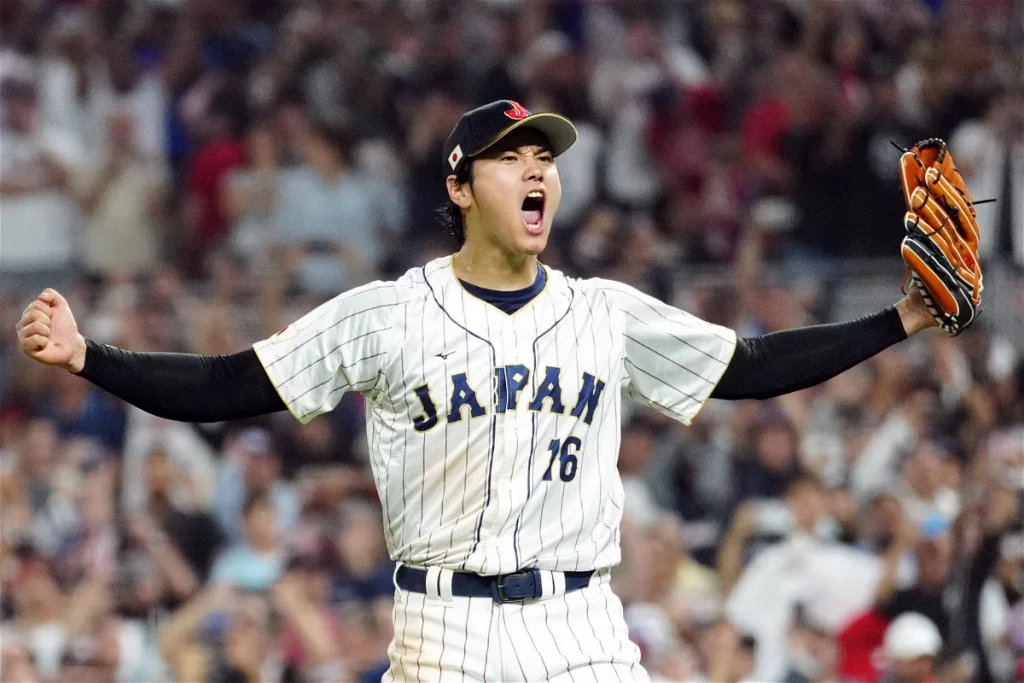
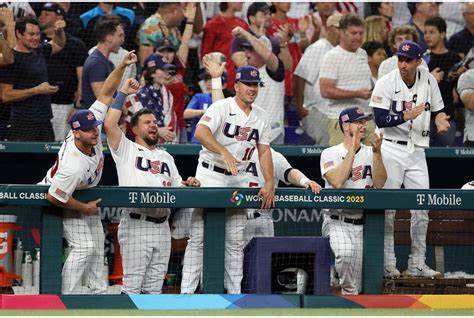
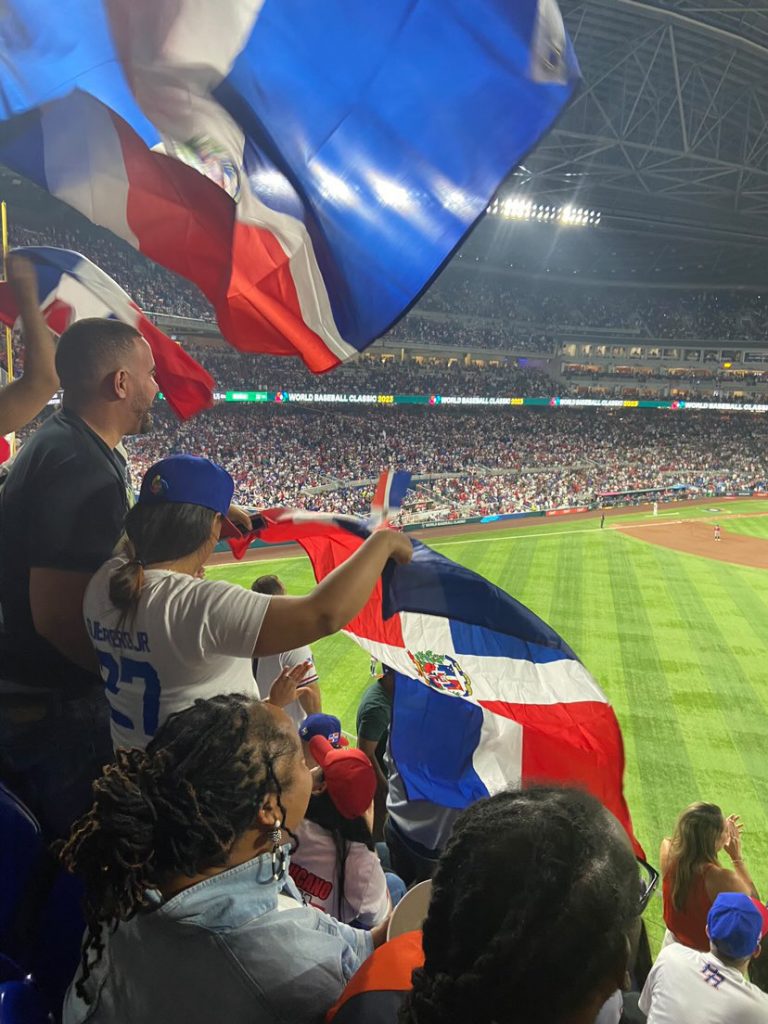

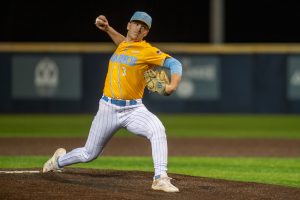

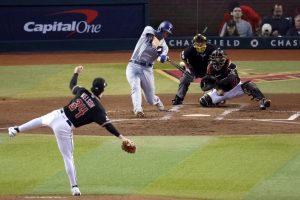






Be First to Comment